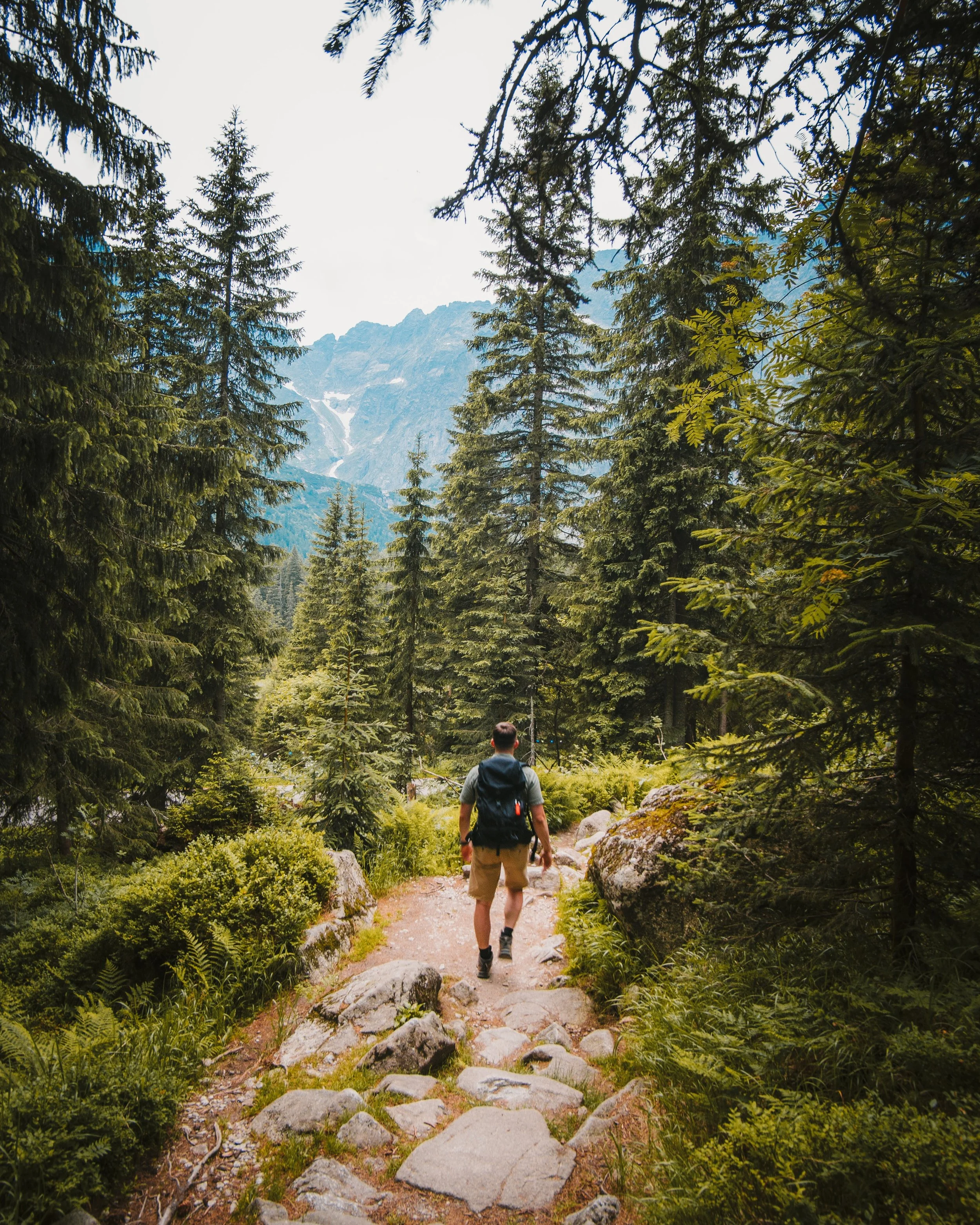Blue Zones: Myth or Model for Longevity?
What Are Blue Zones?
Blue Zones are thought to be specific regions in the world where people tend to live longer, healthier lives. These regions include:
Ikaria (Greece)
Okinawa (Japan)
Sardinia (Italy)
Nicoya (Costa Rica)
Loma Linda (California, USA)
Although these zones are spread all across the world, they share some common characteristics and key lifestyle habits that contribute to longevity—such as eating plant-based diets, regular physical activity, strong social connections and a sense of purpose.
Are Blue Zones Too Good To Be True? (Yes)
Although Dan Buettner was the first to coin these so-called “Blue Zones”, some reports suggest that the extreme longevity in these areas could have been exaggerated through unreliable records and pension fraud.
When researchers took a closer look at these zones, they discovered that none of them had the characteristics expected of a healthy aging population—such as good quality healthcare, and a high quality of life. In fact, the more supercentenarians there were, the lower the life expectancy. What they found in these areas was low rates of literacy, high crime rates and poor health, suggesting there may have been some errors in the vital records.
You may be wondering how big these errors could be to skew data so significantly, and as it turns out, they can be pretty huge. In 2010, the BBC reported that over 230,000 Japanese centenarians were unaccounted for.
It might also be the case that these areas’ reputations have outlived their current reality. In Okinawa for example, men now have shorter lifespans than the national average in Japan. But how did this happen?
The westernization of diets in these areas could be to blame, with fast food chains popping up and influencing dietary habits, especially amongst younger populations.
Lessons We Can Learn From So-Called “Blue Zones”
Even though the idea of “Blue Zones” is dubious, what remains clear is that lifestyle factors have a bigger influence on longevity than genetics, and the habits typically promoted as being associated with Blue Zones can have beneficial effects on our health and lifespan.
DIET
Plant-based diets rich in whole foods like vegetables, legumes, and grains, with limited consumption of processed foods and sugar tend to enhance longevity in most people. For example, the Mediterranean diet, typical of Ikaria and Sardinia, is known for its heart-healthy benefits.
In Okinawa, they also have a principle called “Hara hachi bu,” which can be loosely translated to “eat until you are eight parts (out of ten) full.” This approach consists of eating until you’re 80% full, ensuring that you avoid excessive food consumption.
Mindful eating and avoiding overconsumption is especially helpful for people who are prone to overweight.
Simple things you can try:
Serving yourself moderate portions (no seconds and no super-sizing), consider using a smaller plate to help with portion control
Eating no more than three meals a day
Avoid snacking between meals
PHYSICAL ACTIVITY
In long lived populations, exercise is integrated into daily life for many. People don’t go to the gym per se, but they walk, garden, or engage in low-intensity activities regularly, which keeps them physically fit without formal exercise routines.
The benefits of regular physical activity on our health are widely agreed on, and the current recommendations from the Physical Activity Guidelines for Americans advise a minimum of 75 vigorous-intensity or 150 moderate-intensity minutes of aerobic activity per week.
Getting into the rhythm of a consistent exercise routine can be tricky, so we recommend that you start off small, committing to maybe 5-10-15 minutes of exercise as you begin and working your way up from there. Having an accountability partner will also help keep you motivated and be there to celebrate your progress. Our Longevity Program can help you implement healthy exercise routines and habits into your life with the support of qualified professionals who work with you to optimize your health and lifespan.
SOCIAL CONNECTIONS
A strong sense of community and maintaining close relationships are central to the lives of many living in places labelled as Blue Zones. These social connections provide emotional support, reduce stress, and give a sense of belonging.
Social interactions help combat feelings of isolation and loneliness, which can be prevalent amongst older populations and negatively impact their health as they age. Some find this sense of community in religion, as have the deeply religious people in Loma Linda, who are part of the Seventh-Day Adventist community. As part of their religious beliefs, they also follow a nutritious plant-based diet.
PURPOSE AND MINDFULNESS
Long-lived people often report a clear sense of purpose, referred to as "Ikigai" in Okinawa, which gives them motivation and satisfaction in daily life. They also tend to practice mindfulness and manage stress through regular routines, such as prayer, meditation, or taking time to rest.
These acts of mindfulness help reduce stress, which can harm our health if experienced for prolonged periods.
Health Benefits of Adopting Blue Zones Practices
Longevity:
The lifestyle habits noted above are linked to lower rates of chronic diseases like heart disease, diabetes, and cancer, contributing to longer lifespans.
Mental and Emotional Well-being:
Strong social bonds and a sense of purpose not only enhance physical health but also improve mental resilience, reducing the risk of depression and anxiety. Practicing mindfulness and meditation on a regular basis can also help regulate moods.
Practical, Sustainable Living:
Unlike extreme health fads, these practices are simple, sustainable, and accessible to most people. They emphasize moderation and balance rather than drastic changes.
5 Tips for Incorporating Blue Zone Habits into Your Life
1.Eat More Plant-Based Meals
Start by adding more vegetables, legumes, and whole grains into your meals. Aim to reduce your intake of processed foods, red meat, and refined sugars.
2. Move Naturally
Find ways to incorporate movement into your daily routine, such as walking instead of driving, taking the stairs, or gardening.
3. Foster Social Connections
Strengthen relationships with family, friends, and community. Make time for regular social gatherings and support networks.
4. Find Your Purpose
Reflect on what gives your life meaning and motivation. Whether it’s family, work, being part of a gym community, or a personal passion, cultivating a sense of purpose can improve your overall well-being.
5. Practice Mindfulness
Integrate stress-relief practices into your day, such as meditation, deep breathing, or spending time in nature. If you are someone who struggles managing their stress, consider counselling for additional support and coping skills.
Longevity At Tall Tree
The health adjusted life expectancy (or that Number of years in good health an person is expected to live) in Canada is less than 70 years, and hasn’t meaningfully changed in over 20 years.
Most people want to live a long and healthy life well past 70 years old. Implementing good lifestyle health habits at any point in life can be a big help.
Many pillars typically associated with Blue Zones (such as a balanced diet and regular exercise) are also integrated into our Longevity program, helping you become the healthiest version of yourself and increase your lifespan.
Tall Tree’s Longevity Program offers a unique, preventative healthcare approach—so that you can proactively manage your health and mitigate health risks down the line.
Our multidisciplinary team of registered health experts will work with you to conduct a thorough assessment of your health, identify opportunities for improvement, and create a realistic health plan to help you reach your goals.
Our approach is always patient-centric, with personalized plans to address your unique needs and constraints.
For more tips and resources on Longevity, check out these posts:






























